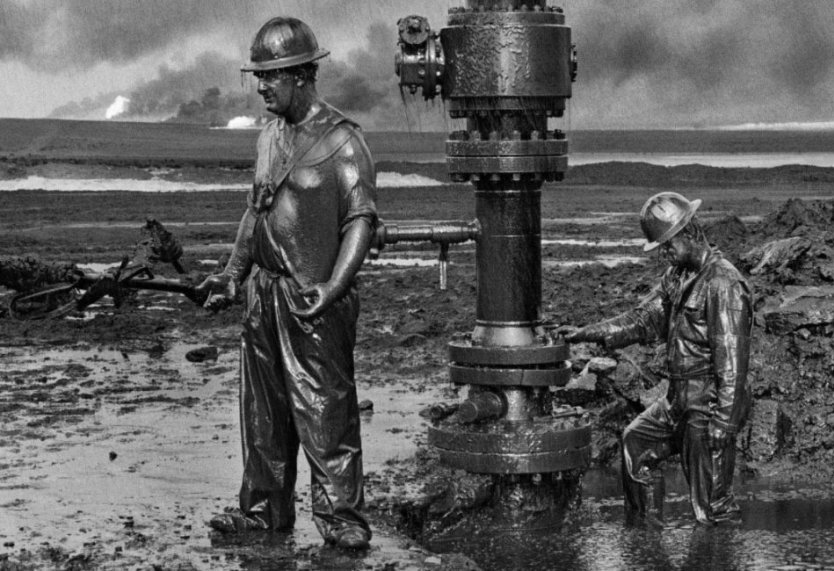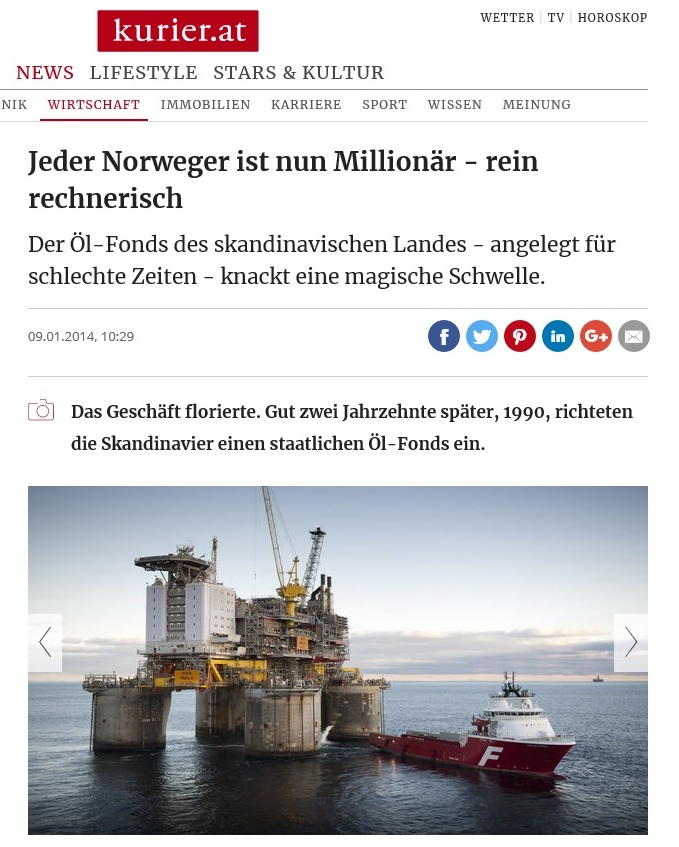Kanada (Toronto), 3 shkurt 2018: Nafta dhe gazi në Shqipëri duhen shtetëzuar, sepse ato janë e vetmja mundësi për ta nxjerr vendin nga kriza e thellë ekonomike. Ato janë e vetmja shpresë për zhvillimin ekonomik të vendit dhe për rritjen e mirëqenies së popullit. Asnjë pasuri tjetër e Shqipërisë nuk mund ta shpëtojë Shqipërinë dhe popullin shqiptar nga varfëria. Kundërshtarët e shtetëzimit të naftës dhe të gazit u shërbejnë vetëm të huajve dhe vetes së tyre, por jo popullit.
***
Shqipëria ka perspektivë të madhe për naftë dhe gaz, sidomos Shqipëria Lindore (Brezi Ofiolitik Mirditë-Kosovë). Në qoftë se kjo naftë-gazmbajtje e madhe e pritshme, do të ishte e shtetëzuar, kjo do të ishte një dhuratë shumë e madhe për kombin shqiptar. Në qoftë se kjo naftë-gazmbajtje e madhe e pritshme jepet me konçesione, ose privatizohet, ky do të ishte një mallkim i madh për kombin shqiptar. Për këto dy mundësi duhet të vendosë vet populli, dhe jo qeveria, pa e pyetur fare popullin, siç po ndodh në Shqipëri.
Nafta dhe gazi në Shqipëri duhen shtetëzuar, që t’i shërbejnë mirëqënies së popullit dhe jo të huajve. Ato duhen shtetëzuar, sepse borxhi i jashtëm i Shqipërisë ka arritur rreth 11 miliardë dollarë. Edhe borxhi i brendshëm është shumë i lartë.

GazetaTema (30 prill 2015): Rekord historik, borxhi publik i Shqipërisë (borxhi shtetëror, ose borxhi i popullit) për herë të parë mbi 1 trilion Lekë (mbi 1000 miliardë Lekë (të reja).
(Lexo burimin: http://www.gazetatema.net/2015/04/30/rekord-historik-borxhi-publik-per-here-te-i-re-mbi-1-trilion-leke/ – plotësim, sh.b)
INSTAT zbulon sa Lekë borxh ka çdo shqiptar (Gazeta Tema, 20 korrik 2016): Çdo shqiptar sot ka borxh 270 mijë Lekë (të reja). Borxhi publik i Shqipërisë (borxhi shtetëror, ose borxhi i popullit) në muajin qershor 2016 arriti 1 trilion e 68 miliardë Lekë (të reja).
(Lexoni burimin: http://www.gazetatema.net/2016/07/24/instat-zbulon-sa-leke-borxh-ka-cdo-shqiptar/ – plotësim, sh.b)
Populli po përjeton një krizë të thellë ekonomike. Ai është varfëruar shumë. Si do të shlyhen këto borxhe të larta, që sa vjen dhe shtohen?
– Si do të zhvillohet ekonomia?
-Si do të rritet mirëqënia e popullit?
– Si do të zhduket papunësia?
Për këto probleme jetike nuk ka asnjë plan dhe perspektivë nga të gjitha qeveritë e njëpasnjëshme, që janë plotësisht të njëllojta. Vetëm shtetëzimi i naftës dhe i gazit mund ta shpëtojë Shqipërinë nga kjo greminë ekonomike. Kështu do të shlyhen borxhet, do të zhvillohet ekonomia, do të rritet mirëqënia e popullit, do të zhduket papunësia…. Prandaj, duhet ndryshim rrënjësor politik ndaj sektorit të naftës, dhe gjeologjisë në përgjithësi. Këtë ndryshim nuk mund ta bëjë kjo klasë politike (PD, PS, LSI etj.), sepse është kundër interesave korruptive të saj. Shteti ta marrë në dorë naftën dhe gazin. Investimet kryesore, tani për tani, të bëhen në sektorin e naftës, i cili do t’i kthente këto investime shumë shpejt dhe shumëfish. Ky sektor shtetëror është e vetmja mundësi shpëtimi.
Më poshtë po japim një shembull:
Gazeta Mail Online (18 dhjetor 2017): Secili person norvegjez bëhet një milioner (1 milion korona norvegjeze të depozituara për çdo person, që është baraz me 100 000 Paund britanikë, ose 134 120 dollarë amerikanë). E gjithë kjo pasuri e madhe u arrit nga nafta dhe gazi si pasuri shtetërore.
Zhvillimi i sektorit të naftës solli:
– zhvillimin ekonomik të Norvegjisë,
– zhdukjen e papunësisë,
– zhdukjen e emigrimit masiv,
– rritjen e madhe të mirëqënies së popullit.
Atje nuk ka dallim pagash, sepse ka programe sociale, që i barazojnë ato. Tek Norvegjia duhet të marrim shembull, dhe tek askund tjetër!!
_______________________
SHTOJCË E PASHTRIKU.ORG
Jeder Norweger ist nun Millionär – rein rechnerisch
Der Öl-Fonds des skandinavischen Landes – angelegt für schlechte Zeiten – knackt eine magische Schwelle.
Das Geschäft florierte. Gut zwei Jahrzehnte später, 1990, richteten die Skandinavier einen staatlichen Öl-Fonds ein.

Ölreichtum : Jeder Norweger ist Millionär – rein rechnerisch
Aktualisiert am 09.01.2014-11:41
Norwegens Ölquellen sprudeln und machen das Land reich. Würde man das Vermögen des staatlichen Öl-Fonds auf alle Einwohner verteilen, hätte jeder mehr als eine Million Kronen.
Wohl denen, die auf Schätzen sitzen und sie zu nutzen wissen: Seit dieser Woche ist jeder Norweger ein Millionär – rein rechnerisch zumindest.
Der staatlichen Fonds, der die Einnahmen aus der Ölförderung anlegt und mehren soll, verwaltet nunmehr ein Volumen von 5,11 Billionen Kronen. Das ist mehr als das Millionenfache der Bevölkerungszahl; Norwegen hat 5,1 Millionen Einwohner. Ein Sprecher der norwegischen Notenbank erklärte, diese Schwelle sei das erste Mal überschritten worden.
Ein Prozent aller Aktien gehören dem Öl-Fonds
Der Government Pension Fund Global wurde 1990 gegründet und ist heute der größte Staatsfonds der Welt. Das skandinavische Land ist der siebtgrößte Öl-Exporteur, nachdem es erst 1969 in die Förderung in der Nordsee eingestiegen ist. Ein Großteil des Gewinns landet in dem Fonds. Dieser besitzt inzwischen etwa ein Prozent aller weltweit im Umlauf befindlichen Aktien, aber auch zahlreiche Staatsanleihen und Immobilien rund um den Globus. „Der Fonds ist ein Erfolg“, sagt der Chefvolkswirt der Finanzgruppe DNB Markets, Öystein Dörum. „Es gibt eine ganze Reihe von Ländern, die das nicht geschafft haben.“
Die Einnahmen werden für schlechte Zeiten und zukünftige Generationen zurückgelegt. Die Regierung darf davon pro Jahr nur vier Prozent ausgeben, etwas mehr als der Fonds an Rendite abwirft. „In vielen Ländern haben die zeitweise hohen Einnahmen aus der
Rohstoff-Förderung einen kurzlebigen Boom ausgelöst, dem dann schwierige Anpassungen folgten“, begründet Finanzministerin Siv Jensen die selbst auferlegten Grenzen.
Experten erwarten, dass sich der Fonds auch künftig gut entwickeln wird. Sein Wert belief sich im zurückliegenden Jahr 2013 auf 183 Prozent der jährlichen Wirtschaftsleistung Norwegens. Bis 2030 soll er auf 220 Prozent steigen.
Dennoch gehört Norwegen zu den wettbewerbsfähigsten Staaten. Das Weltwirtschaftsforum führt das Land auf Rang elf. Die Regierung rechnet in diesem Jahr mit einem Wachstum von 2,1 Prozent, das sich bis 2016 auf 3,1 Prozent erhöhen soll. Die Rohstoffgewinne sind darin nicht enthalten.
Lexoni “Ölreichtum : Jeder Norweger ist Millionär – rein rechnerisch”
http://www.faz.net/aktuell/wirtschaft/wirtschaftspolitik/oelreichtum-jeder-norweger-ist-millionaer-rein-rechnerisch-12743908.html
***
Lexoni shkrimin në gjuhën angleze:
Oil wealth: Every Norwegian is a millionaire – purely mathematical
Updated on 09.01.2014-11: 41
Norway’s oil wells are bubbling and making the country rich. If you were to distribute the assets of the state oil fund to all residents, everyone would have more than one million crowns.
Probably those who rely on treasures and know how to use them: Since this week, every Norwegian is a millionaire – at least in mathematical terms.
The state fund, which is expected to raise and increase oil revenues, now manages a volume of 5.11 trillion kroner. That is more than a million times the population; Norway has 5.1 million inhabitants. A spokesman for the Norwegian central bank said this threshold had been exceeded for the first time.
One percent of all shares belong to the oil fund
The Government Pension Fund Global was founded in 1990 and is today the largest sovereign wealth fund in the world. The Scandinavian country is the seventh largest exporter of oil after it entered mining in the North Sea in 1969. Much of the profit ends up in the fund. It now owns about one percent of all shares outstanding worldwide, but also numerous government bonds and real estate around the globe. “The fund is a success,” says chief economist of the financial group DNB Markets, Öystein Dörum. “There are a lot of countries that did not make it.”
Revenues are paid for bad times and future generations. The government is only allowed to spend four percent of it a year, slightly more than the fund yields. “In many countries, the temporary high revenue from the
Commodity promotion sparked a short-lived boom, then followed by difficult adjustments, “said Finance Minister Siv Jensen the self-imposed limits.
Experts expect the fund to continue to perform well in the future. Its value in 2013 amounted to 183 percent of Norway’s annual economic output. He should rise to 220 percent by 2030.
Nevertheless, Norway is one of the most competitive countries. The World Economic Forum leads the country in eleventh place. The government expects growth of 2.1 percent this year, which should increase to 3.1 percent by 2016. The commodity gains are not included.





